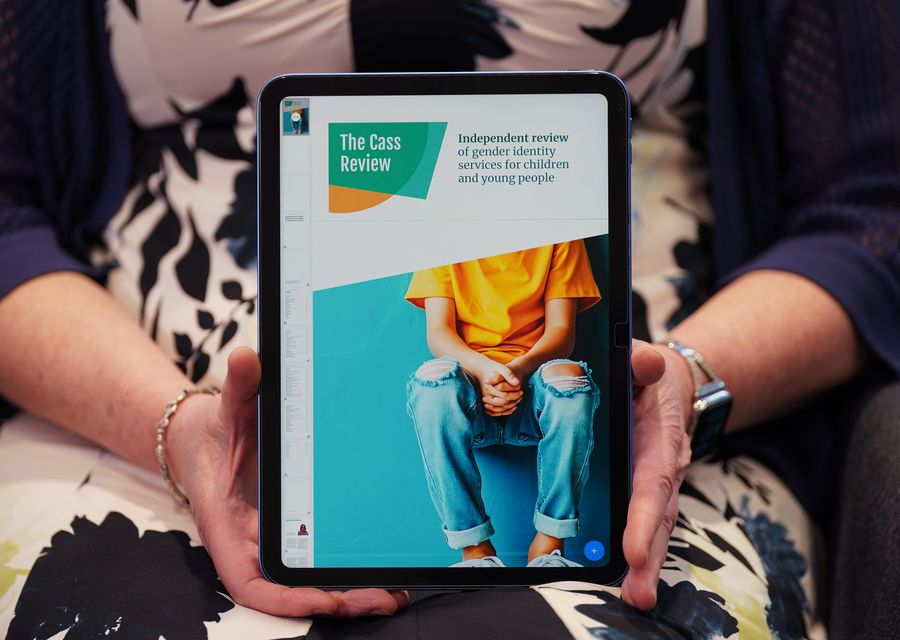The first private gender clinic for young people in England to be registered with the health watchdog has been rated outstanding.
The Gender Plus Hormone Clinic, based in Birmingham, was registered with the Care Quality Commission (CQC) in January and had its first inspection in September.
It treats people aged 16 and older, including through prescribing gender-affirming – masculinising or feminising – hormones.
It does not prescribe puberty blockers, in line with a ban brought in earlier this year preventing the prescription of the medication from European or private prescribers and restricting NHS provision to within clinical trials.
The clinic was set up by Dr Aidan Kelly and is led by nurse consultant Paul Carruthers, both of whom previously worked at the now-closed Gender Identity Development Service (Gids) – which had been run by the Tavistock and Portman NHS Foundation Trust.
In its inspection report, published on Wednesday, the CQC – which looked at 10 patient records, observed three consultations and spoke with 21 patients and their families as well as seven staff members – praised the private clinic’s “patient-centred care and treatment”.
The CQC said the clinic ‘used medicines in line with national guidance and the Cass Review’ (Yui Mok/PA)
The report stated: “There was evidence of a strong learning culture, and patients were cared for in a safe environment.
“There were robust processes in place to assess the needs of the patients using evidence-based guidance. Staff provided patients with patient-centred care and treatment.
“There were governance processes in place which were effective, and staff knew their roles and responsibilities.”
The regulator said it found the clinic “used medicines in line with national guidance and the Cass Review”.
It stated: “National legislation and associated guidance restricted the new prescribing of puberty suppressing hormones for the treatment of gender incongruence or gender dysphoria in children and young people who are under 18 years of age.
“The clinic had sought guidance from the government and a lawyer to ensure they were practising in line with the law and were able to use these medicines only when prescribing feminising treatment and when puberty had been found to be fully established.”
The clinic was rated outstanding for being effective, responsive, caring and well-led, and was rated as good for being safe.
While the clinic operates out of Birmingham, patients can also have appointments in London and Leeds, and the service said it has seen 152 UK patients since its registration.
Patients are primarily aged between 16 and 25, those behind the service added.
Dr Kelly, a consultant clinical psychologist who is director of the clinic, described the inspection process as having been “rigorous” but said it was an “opportunity to really showcase what transgender healthcare can and should look like”.
He said: “Our process and everything that comes with the way in which we administer our approach to holistic healthcare, is geared towards ensuring the best outcomes for patients’ mental and physical wellbeing.
“This is just the beginning, we will continue to advocate for access to care for this community and to strive for continuous improvement in transgender healthcare.”
Mr Carruthers, who leads the service, said: “Our service was set up to narrow the ever-expanding gap that exists when it comes to accessing safe, effective and well-led healthcare for this patient population.
“We have pooled our collective expertise in working with trans people and their support networks to create a service which really listens and responds to their needs, delivering the healthcare trans people deserve.
“I am so grateful to my team for their tireless work in providing the best possible care to this community.”
A third NHS children’s gender clinic for patients in England and Wales opened in Bristol in November, following in the footsteps of two hubs, led by London’s Great Ormond Street Hospital (Gosh) and Alder Hey Children’s Hospital in Liverpool, which opened in April.
In total, up to eight new NHS children’s gender clinics – for children of any age – are due to open by 2026.
They are being set up as part of NHS England’s plan to transform gender care for children, following the closure of Gids and the publication of the Cass Review which concluded children had been let down by a lack of research and evidence on medical interventions in gender care.
Figures earlier this year showed more than 5,000 under-18s were on the national waiting list for gender care as of the end of May, with an average waiting time of 100 weeks – and that the youngest person waiting was aged under five.
NHSE has said its new approach to children’s gender care, which requires children newly referred for gender care to have been seen by a GP and mental health specialist or paediatrician first, is aimed at adding safety nets, rather than extra barriers, in children’s care.
This follows Dr Hilary Cass’s recommendation that care should be “holistic and personal”, possibly including screening for neurodevelopmental conditions, including autism, as well as a mental health assessment.
